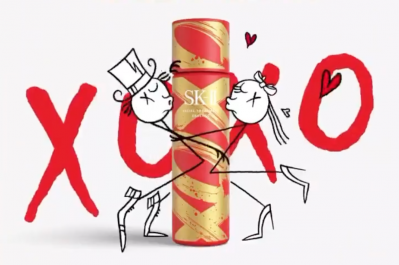‘Reverse recycling’: Korea actions new scheme to aid goal of recycling 10% of cosmetic packaging by 2025
![KCA and KPRC have announced a new 'reverse recycling program' for cosmetic companies. [Getty Images]](/var/wrbm_gb_food_pharma/storage/images/_aliases/wrbm_large/publications/cosmetics/cosmeticsdesign-asia.com/headlines/packaging-design/korea-actions-new-scheme-to-aid-goal-of-recycling-10-of-cosmetic-packaging-by-2025/12069265-1-eng-GB/Korea-actions-new-scheme-to-aid-goal-of-recycling-10-of-cosmetic-packaging-by-2025.jpg)
The Reverse Recycling Scheme of Cosmetic Containers is a joint business agreement inked by KCA, KPRC and the South Korean Ministry of Environment (MoE).
It stipulates that cosmetic manufacturers or importers that have glass bottles, PET bottles, or other synthetic resin packaging materials, can apply to join the reverse recycling scheme with KPRC.
With this recovery campaign, the authorities aim to recycle 10% of cosmetic packaging by 2025. In 2019, only 0.56% of packaging was recycled in Korea.
This new initiative follows the implementation of the Act on the Promotion of Saving and Recycling of Resources, which came into force in September 2020.
The act, which was announced back in 2018 by MoE the classifies packaging materials into four recycling grades: excellent, good, normal and difficult.
By participating in this new recycling scheme, cosmetic companies will be able to avoid labelling their packaging as ‘difficult’ to recycle.
Avoiding a black mark?
Lorraine Li of Chemlinked explained that this labelling has been seen as detrimental to the Korean cosmetic industry.
“To protect the product’s efficacy, most cosmetic containers are coloured or made out of complex materials. As a result, plenty of cosmetic containers would be subjected to the ‘difficult to recycle’ label. This mark may cause consumers think the brand is not environmentally friendly.”
Li added that this has led to concerns from the Korean cosmetic industry about tainting the image of K-beauty, which largely depends on its natural beauty reputation, which would result in the loss of the competitiveness of K-beauty brands in the market.
In recent years, the consumer demand for greener and more environmentally friendly products has pushed the industry to rethink the impact of its packaging.
Last August, CosmeticsDesign-Asia reported that K-beauty behemoth Amorepacific had aligned itself with United Nation’s (UN) 2030 Sustainable Development Goals and was actively working to extend its use of eco-packaging solutions across all its brands as part of its Less Plastics campaign.
To keep up with the consumer demand for greener products, Amorepacific said it was actively working to decrease its dependence on plastic packaging across all brands.
For instance, the firm developed and adopted the use of a zero-metal pump made out of 100% recyclable plastic for its brand Happy Bath, allowing consumers to recycle it without having to dissemble.
How it will work
To participate, companies need to submit an agreement and recycling plan to KPRC. Once accepted, the company will be eligible for this scheme for five years.
The recycling scheme would require consumers to return empty cosmetic containers to cosmetic distribution channels such as brand shops, department stores and hypermarkets.
KCA and KPRC noted that cosmetic brand owners and retailers can choose to offer an incentive to consumers who choose to participate in the recycling scheme.
The cost of recycling will be borne by the cosmetic companies, who will pay recycling fees directly to KPRC.
According to the document, the recycling fee will vary based on material types, transportation costs, and other relevant fees.
![euuse believes its reconstituted format is the ideal solution to provide consumers sustainable hand soap products at an affordable price point. [Reuuse]](/var/wrbm_gb_food_pharma/storage/images/_aliases/wrbm_medium/publications/cosmetics/cosmeticsdesign-asia.com/headlines/brand-innovation/singapore-start-up-launches-hand-soap-tablets-to-bring-low-cost-sustainability-to-consumers/12173792-1-eng-GB/Singapore-start-up-launches-hand-soap-tablets-to-bring-low-cost-sustainability-to-consumers.png)
![Femmue is aiming to reinforce its position in Korea, Japan, the US and UK to maintain 2020’s growth momentum. [Femmue]](/var/wrbm_gb_food_pharma/storage/images/_aliases/wrbm_medium/publications/cosmetics/cosmeticsdesign-asia.com/headlines/brand-innovation/korea-based-femmue-narrows-focus-on-core-markets-to-drive-growth-after-more-than-doubling-sales-in-2020/12127015-1-eng-GB/Korea-based-Femmue-narrows-focus-on-core-markets-to-drive-growth-after-more-than-doubling-sales-in-2020.png)
![Bondi Sands has outlined how it aims to become a leader in the sustainable beauty arena. [Bondi Sands]](/var/wrbm_gb_food_pharma/storage/images/_aliases/wrbm_medium/publications/cosmetics/cosmeticsdesign-asia.com/headlines/brand-innovation/bondi-sands-committed-to-forging-more-sustainable-path-in-the-next-three-years-ceo/12123224-1-eng-GB/Bondi-Sands-committed-to-forging-more-sustainable-path-in-the-next-three-years-CEO.jpg)


![YSL's LoveShine launch has sparked a demand surge in Japan. [YSL]](/var/wrbm_gb_food_pharma/storage/images/_aliases/wrbm_tiny/publications/cosmetics/cosmeticsdesign-asia.com/headlines/brand-innovation/ysl-loveshine-launch-propels-lip-gloss-sales-to-record-highs-in-japan-since-2020/17372064-1-eng-GB/YSL-LoveShine-launch-propels-lip-gloss-sales-to-record-highs-in-Japan-since-2020.jpg)
![There is significant scope for innovation and new launches in the hair repair sector, especially in soaring markets such as China. [Getty Images]](/var/wrbm_gb_food_pharma/storage/images/_aliases/wrbm_tiny/publications/cosmetics/cosmeticsdesign-asia.com/article/2024/04/24/croda-zeroes-in-on-hair-repair-solutions-as-damage-hair-concerns-surge-in-markets-like-china/17362731-1-eng-GB/Croda-zeroes-in-on-hair-repair-solutions-as-damage-hair-concerns-surge-in-markets-like-China.jpg)



![Lubrizol has extended its partnership with C-beauty major PROYA. [PROYA]](/var/wrbm_gb_food_pharma/storage/images/_aliases/wrbm_tiny/publications/cosmetics/cosmeticsdesign-asia.com/headlines/brand-innovation/lubrizol-bullish-on-potential-of-c-beauty-growth-potential/17362515-1-eng-GB/Lubrizol-bullish-on-potential-of-C-beauty-growth-potential.jpg)

![Amika is targeting localised innovation to drive success in SEA. [Amika]](/var/wrbm_gb_food_pharma/storage/images/_aliases/wrbm_tiny/publications/cosmetics/cosmeticsdesign-asia.com/headlines/brand-innovation/amika-on-quest-to-address-diverse-hair-needs-in-sea-with-sea-buckthorn-range/17339003-1-eng-GB/Amika-on-quest-to-address-diverse-hair-needs-in-SEA-with-sea-buckthorn-range.jpg)


